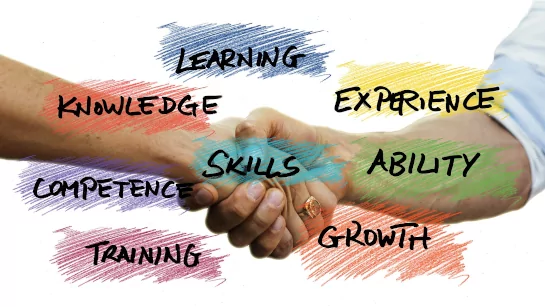Most people would agree that success in business depends on its ability to develop future leaders. But how can you be sure that your business is doing enough to identify and cultivate leadership potential in its employees? A leadership assessment can help.
A leadership assessment is a tool that measures individual employees’ readiness for leadership roles within your business. It assesses their skills, knowledge, and attitudes related to leadership, and provides feedback on their strengths and areas for development.
Using a leadership assessment can help you identify high-potential employees, develop training programs for them, and create career paths that will enable them to reach their full potential. Therefore, a leadership evaluation could be part of a process to develop leadersship candidates in your business.
How to evaluate a leader?
It is hard to say how to evaluate a leader. Some people may focus on the leader’s ability to make decisions, while others may place more emphasis on the leader’s ability to inspire and motivate their followers. Still, others may look at a leader’s skills in terms of being able to communicate well or strategic thinking. Ultimately, it is up to the individual business to decide what leadership qualities they deem most important in a leader.
1. Decision-making ability

A good decision-maker can be invaluable in a leadership role. They can quickly assess a situation and come up with a plan of action that will best serve the needs of their team or organization. This quality is especially important in times of crisis when quick decisions are often required.
2. Inspiring and motivating followers
A great leader knows how to get the best out of their followers by inspiring them and motivating them to achieve common goals. A leader who can do this effectively is likely to have a team that is both productive and loyal. Additionally, a great leader will also help to improve the strengths of their team.
3. Strong communication capabilities

Good capabilities to communicate are essential for any leader. They need to be able to communicate effectively with their team members, as well as with other members of their organization or business. Leaders who can communicate clearly and concisely are likely to be more successful in achieving their goals. Therefore, being in a leadership role requires to be fine to communicate with others regularly.
4. Strategic thinking
Strategic thinkers can see the big picture and develop long-term plans that will help their team or organization achieve its goals. This quality is essential for any leader who wants to be successful in the long term. But the ability of strategic thinking alone is not enough. It must be combined with being good in goal setting as well. Furthermore, goals must be broken down to individual business units or teams.
5. Integrity
Integrity is an important quality for any leader to possess. A leader with integrity is honest and ethical in their dealings with others. They are also someone who can be trusted to follow through on their commitments. Having leaders with integrity is crucial for any business as clients and society is closing watching every act of a business in todays world.
A leader’s responsibilities are many and varied. One of the most important is to avoid taking advantage of their leadership position, and instead use their power for the benefit of those they lead. This includes making sure that all voices are heard, and that everyone has an opportunity to contribute. Leaders must also be honest and open, always willing to admit when they’re wrong and willing to listen to others’ suggestions. By following these simple guidelines, leaders can help create a positive, productive environment in which everyone can flourish.
These are just a few of the leadership qualities that one might look for when evaluating a leader. What to look for in a leader depends on the decisions of any business individually.
What are leadership skills?

Leadership skills are important for a variety of reasons. First and foremost, leaders need to be able to communicate effectively with their teams. This means being able to listen to what others have to say and then synthesizing that information into a clear and concise message. Leaders also need to be able to solve problems quickly and efficiently. This often requires being able to make decisions quickly, even in difficult situations. Finally, leaders need to be well organized and capable of managing their time efficiently. All of these abilities are critical to be a successful leader.
Effective leaders possess a variety of other expertise as well. They are often good at motivating others and have a strong vision for what they want to achieve. They are also usually very charismatic and can build strong relationships with those they work with. Leaders must also be able to delegate tasks effectively and give clear instructions. All of these capacities are important to be an effective leader.
Leadership skills are important for many reasons. Good leaders are essential for any organization or team to be successful. They provide direction, motivate others, and help to solve problems. If you want to be a leader, you must develop these capabilities.
Leadership capabilities
Here are some leadership capabilities as a bullet point list for a quick overview:
- Communication
- Problem-solving
- Decision-making
- Organization
- Time management
- Solution focus
- Team-building ability
- Confidence
- Self-awareness
- Visualization abilities
- Strategic thinking and acting
- Goal setting abilities.
On top of these leadership capabilities a good leader must make clear which values he or she is representing or standing up for. Values are incredibly important to leaders. They are the reason that a leader is able to inspire people and get them to follow them. There are many different values that a leader can stand for, but some of the most important ones are loyalty, justice, courage, and compassion.
Loyalty
Loyalty is believing in and sticking with a person or cause, even when things get tough. A leader who represents loyalty will be someone that followers can count on no matter what. They will be honest and fair, and they will never give up on their team or followers.
Justice
Justice is giving people what they deserve, whether it is good or bad. Leaders who stand for justice believe in fairness and balance. They want to make sure that everyone is treated equally and fairly, and they will always fight for the underdog.
Courage
Courage is doing what is right even when you are scared. Leaders who stand for courage are willing to take risks in order to make a difference. They aren’t afraid of obstacles, and they will always do what they believe is best for their organization or followers.
Compassion
Compassion is feeling empathy for others and wanting to help them whenever possible. Leaders who stand for compassion care about the well-being of others and want to see them succeed. They will go out of their way to help others, and they will always be there for their team or followers during difficult times.
What is a leadership assessment and why is it important for leaders to complete one?
It is a formal process of evaluating an individual’s leadership abilities. It is usually conducted by an external body such as a consultancy firm or leadership development organization. The evaluation typically involves giving the leader a questionnaire to complete, followed by an interview and/or observations from other people.
The purpose of the assessment is to provide feedback to the leader on their leadership style and abilities and to recognize areas for development. This feedback can be invaluable for leaders as it can help them to improve their performance and effectiveness. In addition, leadership assessments can also help organizations to identify potential leaders and identify succession planning needs. Consequently, leadership assessments are an essential tool for both individuals and organizations.
How can you use the results of your assessment to improve your leadership skills?

One of the most critical aspects of being a successful leader is continuous self-improvement. After all, leadership is about more than simply having a vision – it’s about being able to execute that vision and inspire others to do the same. Fortunately, there are many ways to assess your leadership skills and identify areas for improvement. Once you have your results, you can use them to inform your leadership development plan.
For example, if you find that you’re not very good at delegating tasks, you can make a conscious effort to delegate more often. Or, if you discover that you tend to micromanage your team, you can work on giving your team members more autonomy. By using the results of your assessment as a starting point, you can develop a targeted plan for improving your leadership abilities.
How to measure leadership skills?

No one is born a leader. Leaders are made, not born. And the process of becoming a leader is never-ending. It starts with learning how to measure leadership skills and recognizing your strengths and weaknesses.
There are many different ways to measure leadership capabilities, but the most important thing is to find a system that works for you. Some people prefer self-evaluation tools, while others prefer performance reviews or 360-degree feedback from their team members.
Whatever system you choose, make sure you use it regularly to track your progress and identify areas where you need to improve. The more aware you are of your strengths and weaknesses, the better equipped you will be to lead others effectively.
Who should administer a leadership assessment and when should it be done?
A leadership assessment can be a valuable tool for both individuals and organizations. By measuring factors such as task orientation, people orientation, and stress tolerance, a leadership evaluation can help to identify areas of strength and weakness. For individuals, this information can be used to help set goals and plan for professional development. For organizations, this information can be used to identify potential leaders and ensure that the right people are in the right roles.
When administering a leadership assessment, it is important to consider who will be administering the evaluation and when it will be done. For individual assessments, it is often best to have a trained professional administer the process. For organizational assessments, it may be best to administer the evaluation at regular intervals (such as every few years) to ensure that the results are up-to-date and accurate.
What are some of the most common types of assessments?
There are a variety of assessments available to help individuals identify their strengths and weaknesses. Some of the most common types of assessments include aptitude tests, intelligence tests, and personality tests. Aptitude tests measure an individual’s ability to learn new skills or knowledge and are frequently used in educational or workplace settings.
Intelligence tests assess an individual’s cognitive abilities and are regularly used as part of the admissions process for schools or jobs. Personality tests evaluate an individual’s personality type and can be used for a variety of purposes, including counseling and career planning.
How do you know if an assessment is right for you?
Assessments can be a helpful tool for individuals who want to gain insights into their personality, strengths, and weaknesses. However, it is important to choose the right assessment for your needs. Otherwise, you may not get the most accurate or useful results. When selecting an assessment, there are a few factors to consider.
First, decide what type of evaluation you require. For example, are you interested in a personality or a skill assessment? Second, consider the purpose of the assessment. What do you hope to learn from it? Once you have a clear idea of what you require and why you require it, research different assessments to find the one that best meets your needs.
Finally, make sure you feel comfortable with the assessment and that it is administered by a qualified professional. With these factors in mind, you can select an assessment that will provide valuable insights into your personal development.
How can you get started on completing a leadership assessment?

There are many leadership assessments available, so it is important to choose one that is right for you. Once you have selected an assessment, you will need to complete it. This can involve completing a questionnaire or participating in an interview. Once you have completed the evaluation, you will receive a report that highlights your leadership skills. You can then use this report to develop a plan for improving your leadership abilities.
Could you become a leader even without going through a leadership assessment?
Leadership is not a one-size-fits-all proposition. What works for one person might not work for another, and what worked yesterday might not work today. That’s because leadership is an ever-evolving art, and the best leaders are always learning and growing.
That said, there are some basic qualities that all good leaders share. And while you may not have had the opportunity to take a leadership assessment, there are still ways to develop your leadership abilities.
As of the above, the answer is yes. You could become a great leader even if you never go through a leadership assessment. There is only one requirement, you keep improving your leadership skills and practice them as much as possible.
How to prepare for a leadership assessment?
Most people would agree that it is important to be able to assess leadership potential to make the best decisions about who should hold positions of power. But what does it take to be prepared for a leadership assessment?
One key factor is understanding the types of questions that are likely to be asked. Many assessments will include both cognitive and behavioral questions. Cognitive questions require you to use your reasoning capabilities, while behavioral questions ask how you have reacted in certain situations in the past.
Another essential preparation strategy is practicing self-awareness. Knowing your strengths and weaknesses is critical for answering behavioral questions honestly and accurately. Understanding how you come across to others can help you give better responses in interviews and other assessment scenarios.
The bottom line is that if you want to do well on a leadership assessment, start by preparing yourself mentally and emotionally. Understand the types of questions that will be asked, and know yourself well enough to answer them honestly and accurately.
How do you measure the effectiveness of assessments?

Measuring the effectiveness of assessments is a difficult task. There are many factors to consider, such as how well the assessment measures what it is supposed to measure, how accurately the results reflect the actual ability of the leader, and how well the assessment can be used to improve self awareness and learning.
One way to measure the effectiveness of an assessment is to look at its reliability. This refers to how consistent the results are from one test administration to another. A high degree of reliability means that leadership candidates scores on different occasions will be very similar. This indicates that the assessment is measuring what it is supposed to measure accurately.
Another way to measure effectiveness is by looking at validity. This term refers to how well an assessment actually measures what it is supposed to measure- in other words, how accurate it is. A valid assessment will produce results that match up with actual ability or knowledge levels of leadership candidates as determined by other measures such as evaluation from other people or team mates.
Finally, assessments can also be judged effective based on their usefulness in improving leadership abilities and feedback. An assessment that provides useful information about the leadership candidate’s strengths and weaknesses can help coaches tailor their instruction more effectively. Additionally, if leadership candidates understand why they are being assessed and what the results mean for their development, they can be more motivated to do well.
When looking at the effectiveness of an assessment, it is important to keep in mind the purpose for which it was designed. Different assessments will have different purposes, so it is not possible to make a general statement about which one is best. The most essential thing is that the assessment chosen is fit for the purpose it is meant to serve.
Different types of assessments
Different types of assessments serve different purposes. Some leadership assessments are designed to measure a leadership candidate’s current knowledge or ability level in a particular subject area, while others are intended to diagnose areas of weakness so that instruction can be tailored accordingly. Still, others are used primarily for high-stakes decision-making, such as deciding who should be promoted to the next grade or whether a leadership candidate should receive special education services.
No single assessment can serve all of these purposes, so it is important to choose an assessment that is appropriate for the task at hand. When selecting an assessment, businesses should consider its purpose, as well as its reliability and validity. Additionally, it is important to make sure that leadership candidates understand why they are being assessed and what the results of the assessment will mean for their progress.
The Benefits of Leadership Assessments
Leadership assessments can help individuals and organizations identify areas in which they need to improve. They can also help leaders understand their strengths and weaknesses, and identify the areas in which they need to focus their efforts. Finally, leadership assessments can help create a more effective leadership team by identifying the abilities and knowledge that each individual brings to the table.
Nonetheless, it might be even more effective to increase the strengths of any leader instead of spending too much time on erasing the debilities. That said, it does not mean to avoid looking at debilities of a leader. It depends on the impact the debilities will have and only improve them as much as needed.
You could have much more success with becoming a great leader, when you increase the development of your strengths. It is much easier to improve the strengths you already have. It might be less effective to improve your debilities. Still, you have to deal with making progress with them as well. Becoming a great leader is a process which never ends.
The evaluation of a leader could also help building more confidence for the business as well as for the leadership candidate as all stakeholders know with whom they are doing business.
However, without practice you could not become a great leader. Hence, you have to find opportunities to practice leadership even if you do not possess a leadership position right now. This could be done by leading projects in the business you work at or at any other organization you like to assist making progress.
As a consequence, you gain more self awareness from a leadership ealuation as well. This is because you receive insights about how you act with your environment. Self awareness is very important for leaders, as only with self awareness you could recognize how you act from moment to moment.
Conclusion

A leadership assessment is an essential tool for individual leaders at any stage in their careers as well as for any business to determine candidates for leadership roles. The results of the leadership evaluation can help you identify your strengths and weaknesses as a leader and provide you with guidance on how to improve your abilities, thus you could see progress for yourself. Thus, a leadership evaluation could be a coaching tool as well. There are many types of assessments available, so it is critical to select one that is right for you.
Once you have selected an assessment, make sure to take the time to complete it thoroughly and use the results to improve your leadership abilities. Take our free email course on Leadership, click this link to sign up today. This online coaching leadership email course is not a leadership assessment, but it still provides you with ideas about where you are at with your leadership skills. Using online courses and evaluations could be a good start, as you could use these tools at your convenience. Check out my course “Leadership Reloaded: Practical Leadership Lessons!”.
Consider that the work isn’t over, when you prepared for a leadership evaluation. Usually the work needs to continue even when you get into a leadership position. Therefore, it could be a great advantage if you make yourself familiar with different evaluation and coaching techniques. As a leader, it is crucial to be able to coach others as well.
Finally, let me clarify that leadership positions are not suitable for everyone. Leadership positions might bring many advantages with them, but they have some disadvantages as well. Though, before entering into a leadership role, make sure you have clarified all of its impacts it will have for yourself. All the Best!
